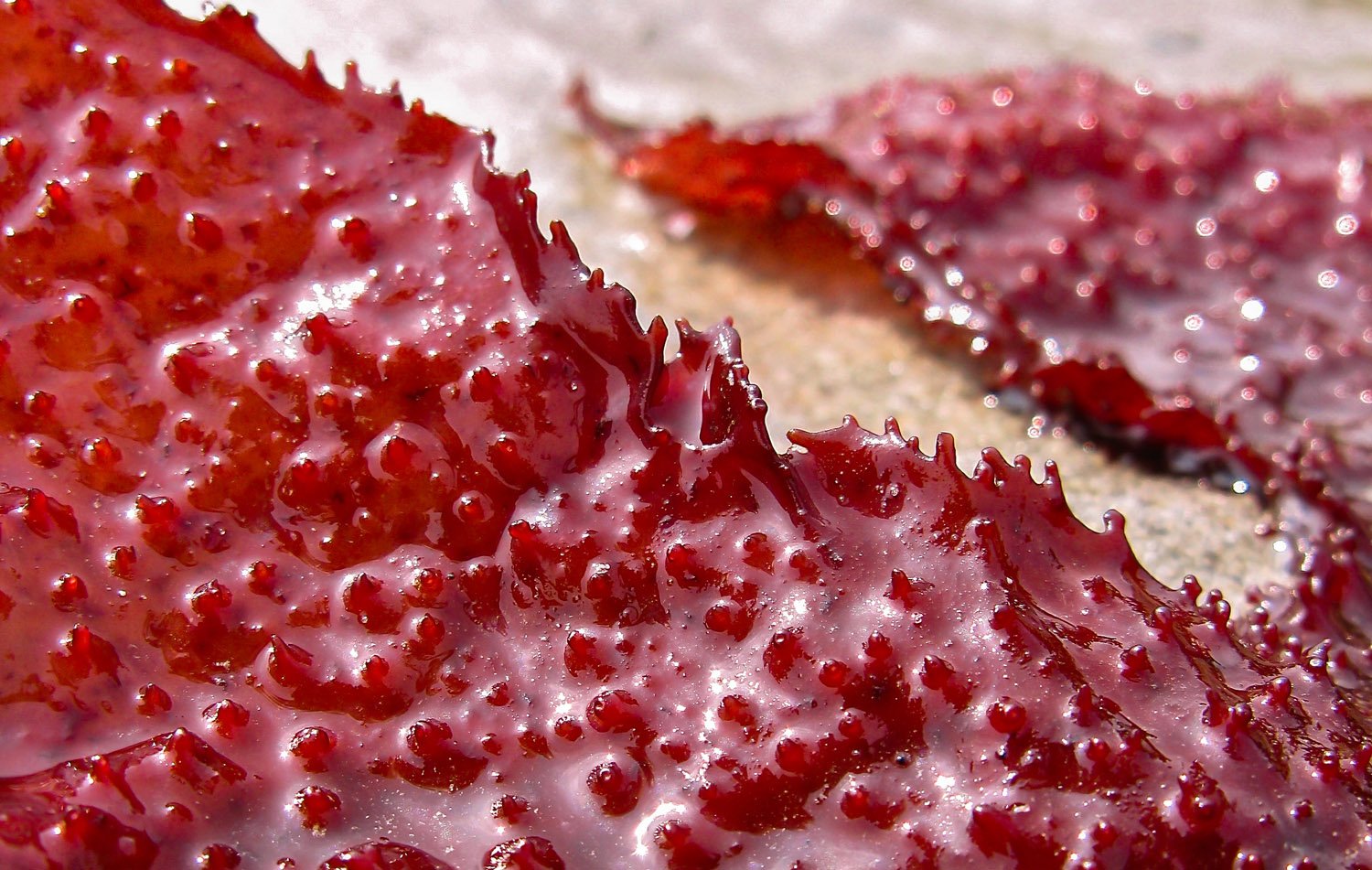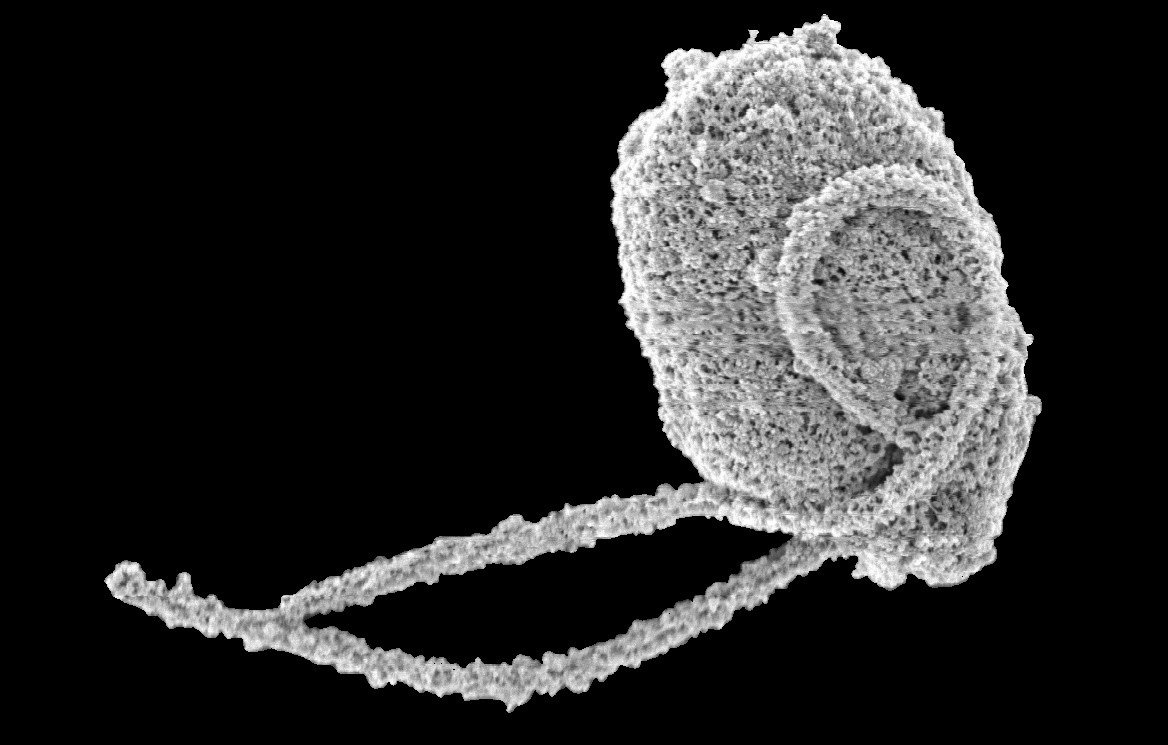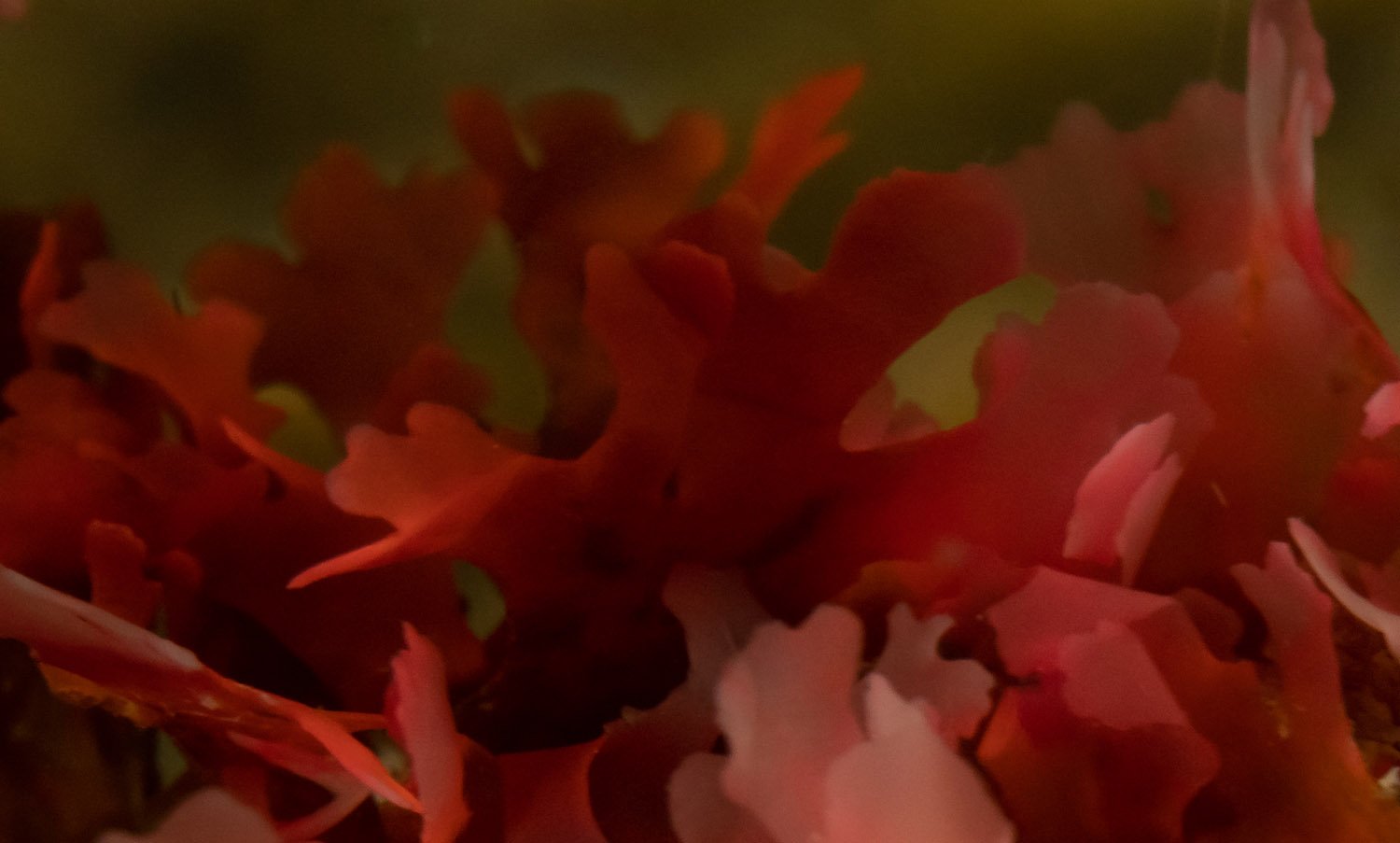The microscopic protists Rhodelphis limneticus and Rhodelphis marinus are genetically ‘sisters’ to red algae, but couldn’t be more different. Red algae are fleshy, large organisms with a simple genome that perform photosynthesis, just like plants. Rhodelphis are single-cell predators with a large, complex genome.
The two protists have a chloroplast, though it is not photosynthetic anymore, pointing to their close ties with plants in the distant past. They also have flagella, a whip-like structure which allows them to move and hunt for their dinner.
“Rhodelphis shows that there was a period of time when the ancestors of plants and algae probably absorbed sunlight to generate energy, while also swimming around eating things,” says University of British Columbia (UBC) biologist Patrick Keeling, the senior researcher leading the study.

[rand_post]
If we think of life as a big family, with algae and Rhodelphis as sisters, their ancient mother was more like a triffid than your standard plant. Triffids are the tall, mobile, carnivorous plants featured in John Wyndham’s 1951 novel The Day of the Triffids.
This surprising evolutionary twist emphasizes the need for robust sampling in order to reconstruct a more complete picture of life.

[ad_336]
“Most people don’t look twice at organisms like this under a microscope, and getting them into culture may be hard work but it’s the only way to really see the true diversity of life,” says Denis Tikhonenkov, the microbiologist who first captured the tiny predators and splits his time between UBC and the Russian Academy of Science.
“There are gems in nature we haven’t found, and sadly the importance of ‘old-fashioned’ exploration is being forgotten,” Keeling says. “These new lineages are a great example – making us realize we were previously seeing things backwards and now we recognize plants had ancestors we couldn’t have imagined.”

Keeling and Tikhonenkov worked on the project with the outstanding Russian Academy of Sciences protistologist Alexander Mylnikov, who died after a long illness shortly before the paper came to press.